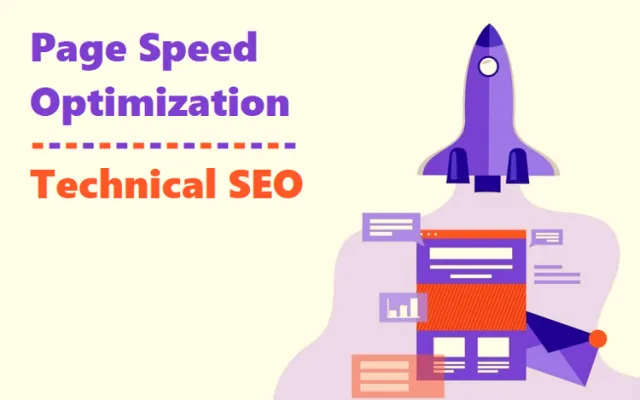Performance-Based SEO and Page Speed Optimization
The Symbiotic Relationship Between Performance-Based SEO and Page Speed Optimization

In the ever-evolving landscape of digital marketing and search engine optimization (SEO), staying ahead requires embracing a holistic approach that considers all facets of user experience and website performance. One critical aspect that has garnered increasing attention in recent years is page speed optimization. The article titled "The Impact of Page Speed on SEO" sheds light on the significance of page speed in the SEO realm. This article aims to explore the synergy between performance-based SEO and the concept of page speed optimization.
Understanding Performance-Based SEO
Performance-based SEO is a paradigm shift from traditional SEO practices that primarily focused on keyword optimization and backlinks. In the era of performance-based SEO, it's all about user-centricity and delivering a seamless online experience. This approach acknowledges that search engines, most notably Google, increasingly prioritize websites that offer fast-loading, responsive, and engaging user experiences.
The core principles of performance-based SEO encompass:
User Experience (UX): Central to this approach is a commitment to providing users with a stellar experience. This includes fast loading times, intuitive navigation, and mobile-friendliness. A smooth UX not only satisfies visitors but also earns favor with search engines.
Content Quality: Beyond keywords, performance-based SEO emphasizes the creation of high-quality, valuable content that genuinely addresses user needs and queries.
Data-Driven Optimization: Performance-based SEO entails continuous data analysis and optimization. Regularly monitoring user behavior and site performance metrics allows for agile adjustments to improve rankings.
Technical SEO: It involves meticulous technical optimization, including aspects like schema markup, structured data, and AMP (Accelerated Mobile Pages), all contributing to a faster and more efficient website.
The Crucial Role of Page Speed
Now, let's delve into the pivotal role that page speed plays in the context of performance-based SEO, drawing insights from "The Impact of Page Speed on SEO."
1. Page Speed as a Ranking Factor
In 2018, Google introduced the Speed Update, signaling a significant shift in its ranking algorithms. Page speed became a decisive ranking factor for mobile searches. This means that websites with faster loading times are more likely to appear higher in search results. For performance-based SEO practitioners, this development reinforced the importance of page speed optimization.
2. User Experience and Bounce Rates
Page speed isn't just about ranking higher; it's also closely intertwined with user experience. Slow-loading pages frustrate visitors, leading to higher bounce rates (users leaving the site quickly). In contrast, faster-loading pages tend to retain users, reducing bounce rates. By focusing on page speed, performance-based SEO aligns with the goal of enhancing user engagement and satisfaction.
3. Mobile-Friendly and Responsive Design
Mobile devices have become the primary means of accessing the internet. Google's mobile-first indexing further underscores the significance of mobile optimization, including page speed. As performance-based SEO aligns with mobile-friendliness, it necessitates responsive design and swift-loading mobile pages.
4. Conversion Rates and Revenue
The article highlights how page speed influences conversion rates and, consequently, revenue. Performance-based SEO practitioners understand that a faster website not only pleases search engines but also boosts conversions. Speed optimization can lead to more sign-ups, purchases, and other valuable user actions.
The Integration of Page Speed Optimization
For performance-based SEO to thrive, it must integrate page speed optimization seamlessly into its framework. This involves several key strategies:
Comprehensive Website Audits: Regularly auditing your website's performance metrics, including page speed, is fundamental. Tools like Google's PageSpeed Insights and GTmetrix provide valuable insights into areas that need improvement.
Optimizing Images and Media: Large images and media files can significantly slow down a website. Performance-based SEO entails optimizing these elements without compromising quality.
Content Delivery Networks (CDNs): Leveraging CDNs helps distribute content across multiple servers, reducing load times for users in different locations.
Caching: Caching mechanisms store previously loaded data, enabling faster retrieval when users revisit your site. It's a crucial aspect of performance-based SEO.
Mobile Optimization: Given the mobile-centric nature of today's online landscape, optimizing for mobile devices is non-negotiable. AMP implementation and responsive design are part of the mobile optimization strategy.
Continuous Monitoring and Adaptation: Performance-based SEO necessitates ongoing monitoring of page speed and user behavior. Identifying bottlenecks and making necessary adjustments is key.
Conclusion
In conclusion, the integration of page speed optimization into the realm of performance-based SEO is not a choice but a necessity in today's digital landscape. The symbiotic relationship between these two concepts is evident in their shared goal of delivering exceptional user experiences.
As "The Impact of Page Speed on SEO" aptly illustrates, page speed isn't merely a technical aspect; it's a driving force behind SEO success. Websites that prioritize fast loading times enjoy higher rankings, improved user satisfaction, lower bounce rates, and increased conversions – all of which are the cornerstones of performance-based SEO.
By embracing the principles of performance-based SEO and recognizing the pivotal role of page speed optimization, digital marketers and website owners can navigate the ever-evolving SEO landscape with confidence. In this synergy, they'll discover not only higher search engine rankings but also more engaged and satisfied users, ultimately driving business growth and success.
GET A FREE QUOTE TODAY
Request a Call for Additional Information

ABOUT US
Founded in Salisbury, NC, Performance Based SEO has intertwined its roots deeply with the community for over 15 years.
Contact Us
Address:
1012 S Fulton Street
Salisbury, NC 28144
Phone Numbers:
Tel: 813-345-4097
Text: 813-345-4097
Business Hours:
Monday - 8:00am - 8:00pm
Tuesday- 8:00am - 8:00pm
Wednesday - 8:00am - 8:00pm
Thursday - 8:00am - 8:00pm
Friday - 8:00am - 8:00pm
Saturday - 8:00am - 8:00pm
Sunday - Closed


